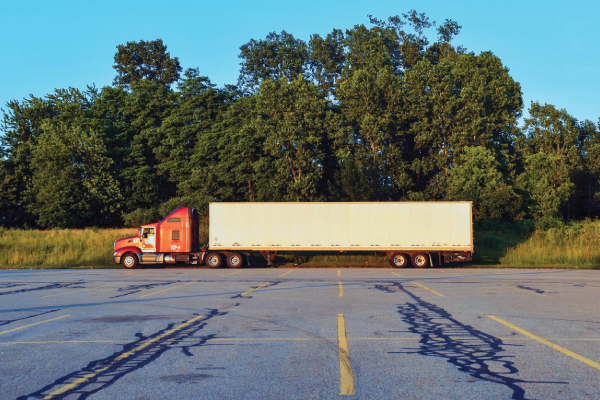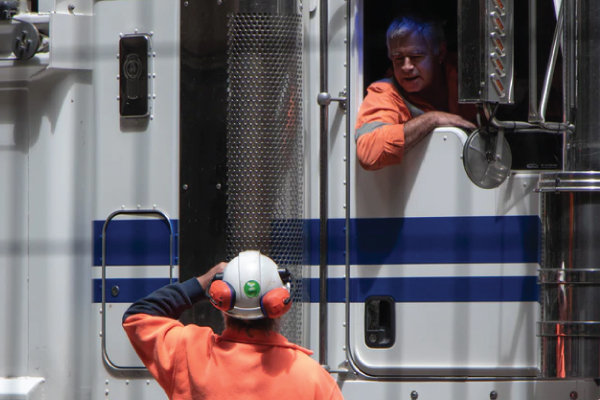Voir quelles sont les tendances dans l’industrie de la prévention des pertes de fret et de la sécurité de la chaîne d’approvisionnement
Preventing Cargo Theft Within Your Business
 Cargo Theft; A Continuing Threat to Our Economy’s Supply Chain
Cargo Theft; A Continuing Threat to Our Economy’s Supply Chain
Cargo theft continues to be increasingly difficult to address in a world where criminals have become more organized and sophisticated. Significant cargo losses can push a business into the red and challenge its viability, especially those that have struggled during the pandemic. Now more than ever, cargo theft has grown to be more complex and planned out, with criminals using technology to take advantage of vulnerable supply chains that don’t maintain proper security.
As North America continues its economic rebound, securing your supply chain and ensuring your products and goods get from A to B is as important as ever. Are you doing enough to protect your supply chain from sophisticated criminals that are always looking to be one step ahead of their victims?
What Is Cargo Theft?
Cargo theft is the criminal act of removing goods from a commercial cargo container while awaiting departure or in transit. Cargo theft can be a crime of opportunity or can be part of a highly organized team of criminals who track, infiltrate, and retrieve precious goods moving through a business's supply chain.
 What Does Cargo Theft Include?
What Does Cargo Theft Include?
Cargo theft can happen during any commercial shipping logistical process, including railroad, trucking, sea tankers, logistics and storage facilities, freight and warehouses, tankers, air cargo, and terminals.
How Much Money is Lost from Cargo Theft?
Multiple industries are impacted by cargo theft, with losses piling up across the globe, coming in at the tens of millions each year.
What Industries Are Impacted by Cargo Theft?
The consumer electronics industry is regularly targeted for cargo theft, along with the pharmaceuticals and healthcare industry. Construction materials such as steel and lumber and shipping containers that include high-end furniture, lighting, and household or kitchen appliances are also popular targets.
 How to Prevent Cargo Theft
How to Prevent Cargo Theft
Businesses require an ongoing investment to secure cargo. These tips can begin your journey into addressing cargo theft in your organization.
- Overnight parking leaves cargo unattended, especially when a driver must rest. Plan for parking at select locations that reduce the potential for crime.
- Screen staff members with criminal background checks to ensure quality and integrity. Criminals often attempt to infiltrate an organization by applying to work for the business. Complete background checks on all truckers and warehouse staff to curb organized crime.
- Create a culture of honesty and reward employees who report theft and fraud.
- Perform regular maintenance on surveillance systems and padlocks. Conduct a recurring audit of your security practices and continually work to improve your efforts.
- Plan your route to avoid known hot spots for theft and have drivers take breaks at well-lit and pre-approved rest stops.
- Add technology into your surveillance efforts with real-time GPS tracking, facial recognition software, and security smart apps and software.
- Implement physical security guards at your warehouses and distribution centers to regularly screen employees with metal detectors.
- Partner with law enforcement and stay up to date with changing trends of cargo theft and other important tips.
 Cargo Theft: Supply Chain Screening and Security Solutions from ISB Global Services
Cargo Theft: Supply Chain Screening and Security Solutions from ISB Global Services
PULSE, powered by ISB Global Services, is a comprehensive suite of cargo loss prevention and supply chain security products and services. Our suite of products are tailored to help businesses of all kinds reduce risk exposure and mitigate cargo crime losses. Services are far-ranging and can include extensive supply chain security assessments, driver and criminal background checks, along with supply chain risk evaluations and audits.
ISB can offer ongoing assessments of your supply chain and prevent issues of theft and fraud in your workplace before it happens. Comprehensive criminal record and driver checks help HR make informed decisions that promote a culture of accountability and respect within your workforce.
Work alongside ISB to successfully identify gaps in policies, procedures, supplier agreements, training, and troubleshooting processes related to risk mitigation.
Contact us directly to learn about PULSE and ISB’s service offerings.




